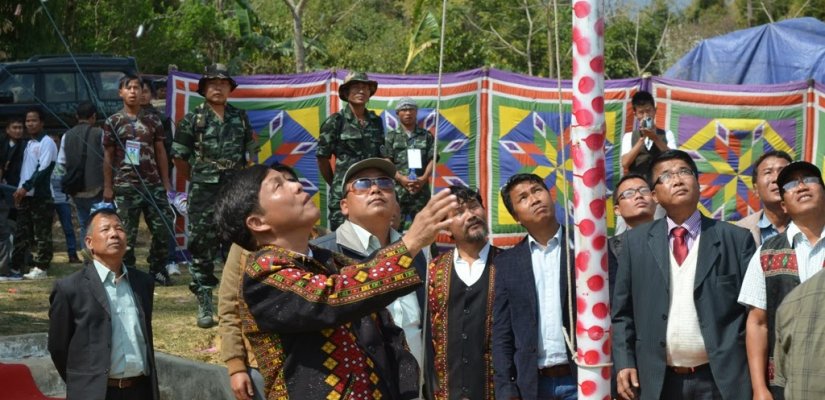Spokesperson of Manipur’s Kuki National Organisation (KNO) says the insurgent group is seeking a political settlement within the framework of the Constitution.
 The United People’s Front (UPF) and Kuki National Organisation (KNO) participated in the Manipur assembly polls for the first time. The UPF and the KNO are a conglomeration of Kuki-Zomi armed groups based in Manipur. The groups signed a Suspension of Operation (SoO) in 2008 and a political dialogue was started in 2016.
The United People’s Front (UPF) and Kuki National Organisation (KNO) participated in the Manipur assembly polls for the first time. The UPF and the KNO are a conglomeration of Kuki-Zomi armed groups based in Manipur. The groups signed a Suspension of Operation (SoO) in 2008 and a political dialogue was started in 2016.
In an email interview, spokesperson of the KNO Seilen Haokip tells Ninglun Hanghal about the organisation’s take on the state election 2017 and the tripartite dialogue.
Question: Was there any invitation from the EC for voting in the assembly polls as in general election 2014? Are the KNO/UPF willing to vote? What are the arrangements?
Answer: Yes, the election commission made arrangements for cadres to cast votes. Yes, we agree. As honourable citizens of India, members of KNO and UPF exercise our franchise. As in 2014, booths were arranged in designated camps.
Q: Were there any issue as reported in 2014 such as logistics, security, such as the distance of polling booth?
A: Polling at designated camps took place without hindrance. There was no major issue even in the general election 2014.
Q: What about election ID cards? Do all cadres have their own identity cards?
A: Cadres have their own identity cards which they use for exercising their franchise.
Q: Now that KNO/UPF are in SoO and in dialogue process, what is KNO/UPF take on electoral politics, in terms of participating in the process under the Indian system?
A: The KNO and UPF are seeking a political settlement within the framework of the Constitution. Therefore, there is no concern of contrary activities against the democratic process. Please note that the KNO and the UPF are fighting for their constitutional rights and, accordingly, engaging in political dialogue with the government. We are not secessionist.
Q: Any comment on the Manipur assembly election?
A: The KNO and UPF would reciprocate government’s goodwill. The nation comes first, party politics is secondary.
Q: what is the status of the dialogue?
A: Tripartite political dialogue commenced on 15 June 2016 between the GoI, the GoM and the KNO and the UPF. The second round of talks was held in October 19, 2016. The chairman of the talks was Joint Secretary – NE, Ministry of Home Affairs.
Q: In the first breakthrough dialogue in 2016 with KNO/UPF, the Ministry of Home – Joint Secretary ( north-east) said that the government is serious. Moreover, Union Home Minister Rajnath Singh at his election campaign in Churachandpur on March 2 said the Union government is interested in pursuing the dialogue. What is your reaction?
A: The KNO and the UPF are confident that the government will abide and carry out its deliberations to safeguard rights of tribal minorities inscribed in the Constitution. We have placed our demands to both GoI and GoM. The next round of talks, which is expected soon, will focus on the stated demands. We trust that it will be meaningful as our demands are not for independence or separation but the constitutional rights of our people.
Q: What are your key demands?
A: The KNO-UPF demand is for statehood, comprising our ancestral lands within the existing state of Manipur in which the chiefs possess legal ownership deeds.
Q: Now that a political dialogue has begun, what about SoO? Will it be extended? How many designated camps are there? What are the technicalities in these designated camps? Will/did the UPF and the KNO surrender arms?
A: The SoO was extended for one year at the first round of talks and remains the same as before talks commenced. We have seven designated camps for the KNO and five for the UPF. Cadres are to stay in designated camps. Agreed number of arms are in possession of the cadres to guard the camps. Remaining weapons are lodged under lock and key. One key is with security forces and another with the camp CO. Arms will not be surrendered. They will be addressed following subsequent political settlement.
Source: Bfirst



